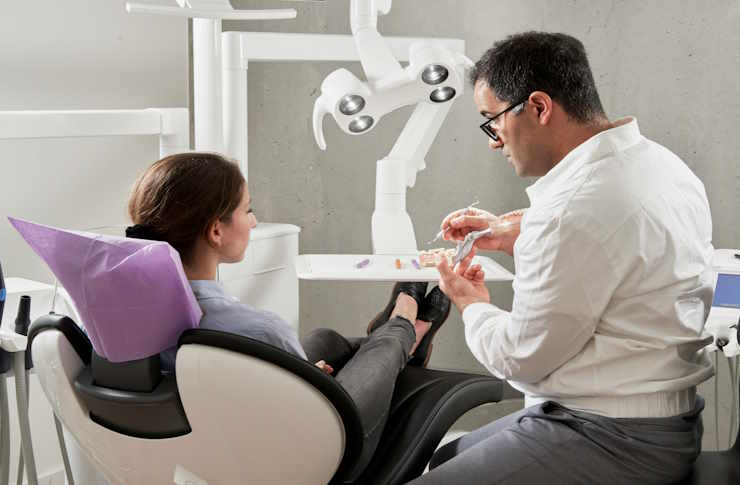Same-Day Dental Implants: What You Need to Know
Same-day dental implants represent a revolutionary advancement in modern dentistry, offering immediate tooth replacement solutions that can transform your smile in just one appointment. This innovative procedure combines implant placement and temporary crown attachment within hours, rather than the months typically required for traditional implant treatments. Understanding how this technology works and determining whether you're a suitable candidate requires careful consideration of various factors including bone density, oral health status, and treatment expectations.

How Same-Day Dental Implants Work and Who They’re For
Same-day dental implants, also known as immediate load implants, involve placing a titanium implant post directly into the jawbone and attaching a temporary crown during the same visit. This process works best for patients with sufficient bone density and healthy gums who have lost a single tooth or multiple teeth. The procedure begins with advanced imaging technology, such as 3D CT scans, which allow dentists to precisely plan implant placement and fabricate temporary crowns before the appointment.
Ideal candidates typically include individuals with good overall health, adequate bone structure, and realistic expectations about the healing process. Patients with uncontrolled diabetes, heavy smokers, or those with severe gum disease may not be suitable for same-day procedures. The immediate loading technique requires primary stability of the implant, meaning the post must be firmly anchored in dense bone tissue to support the temporary restoration.
Understanding the Process Behind Same-Day Implant Options
The same-day implant process begins with comprehensive examination and treatment planning using digital imaging technology. During the procedure, the dentist extracts any remaining tooth structure, places the implant post into the prepared socket, and immediately attaches an abutment and temporary crown. This temporary restoration is designed to be functional yet slightly out of occlusion to protect the healing implant.
Computer-guided surgery plays a crucial role in same-day procedures, allowing for precise implant placement without extensive surgical site preparation. The digital workflow enables dentists to pre-plan the entire procedure, reducing chair time and improving predictability. Patients receive detailed post-operative instructions to ensure proper healing, including dietary restrictions and oral hygiene protocols that protect the implant site during the initial healing phase.
New Techniques Making Implant Procedures More Accessible
Recent technological advances have significantly improved the accessibility and success rates of same-day implant procedures. Digital smile design software allows patients to visualize their final results before treatment begins, while guided surgery systems increase precision and reduce surgical trauma. Advanced implant surface treatments promote faster osseointegration, the process by which the implant fuses with surrounding bone tissue.
Minimally invasive techniques, including flapless surgery and piezoelectric bone preparation, have reduced post-operative discomfort and shortened healing times. These innovations make implant procedures more comfortable for patients who previously avoided treatment due to anxiety or medical considerations. Additionally, improved temporary crown materials provide better aesthetics and function during the healing period.
Factors That Influence the Timing and Cost of Implants
Several factors significantly impact both the timeline and cost of same-day dental implants. Bone quality and quantity at the implant site directly influence whether immediate loading is possible, as insufficient bone density may require additional procedures or traditional healing protocols. The location of the missing tooth also affects complexity, with front teeth often being better candidates for immediate loading due to lower biting forces.
Patient factors such as oral hygiene habits, smoking status, and overall health conditions influence treatment planning and long-term success rates. Complex cases requiring bone grafting, sinus lifts, or multiple implants will increase both treatment time and associated costs. Geographic location and the experience level of the treating dentist also contribute to price variations across different markets.
Comparing Traditional vs Same-Day Dental Implant Approaches
Traditional dental implant procedures typically involve a multi-stage process spanning three to six months, with separate appointments for implant placement, healing, and crown attachment. This conventional approach allows for complete osseointegration before loading the implant with a restoration, potentially offering more predictable long-term outcomes in challenging cases.
Same-day implants offer immediate gratification with functional and aesthetic benefits available within hours of treatment. However, this approach requires stricter patient selection criteria and may have slightly higher initial failure rates compared to traditional methods. The choice between approaches depends on individual patient factors, treatment goals, and the specific clinical situation presented.
| Provider Type | Average Cost Range | Treatment Timeline | Key Considerations |
|---|---|---|---|
| General Dentist | $3,000 - $5,000 | 1 day initial, 3-6 months healing | Limited complex case experience |
| Oral Surgeon | $4,000 - $6,500 | 1 day initial, 3-6 months healing | Surgical expertise, hospital privileges |
| Periodontist | $4,500 - $7,000 | 1 day initial, 3-6 months healing | Gum and bone specialist |
| Prosthodontist | $5,000 - $8,000 | 1 day initial, 3-6 months healing | Restoration specialist |
Prices, rates, or cost estimates mentioned in this article are based on the latest available information but may change over time. Independent research is advised before making financial decisions.
Same-day dental implants represent an excellent option for qualified patients seeking immediate tooth replacement solutions. While the technology continues to evolve and success rates improve, careful patient selection and realistic expectations remain crucial for optimal outcomes. The decision between same-day and traditional implant approaches should be made in consultation with qualified dental professionals who can assess individual circumstances and recommend the most appropriate treatment plan. As techniques continue to advance and become more accessible, same-day implants will likely become an increasingly viable option for a broader range of patients seeking efficient, effective tooth replacement solutions.
This article is for informational purposes only and should not be considered medical advice. Please consult a qualified healthcare professional for personalized guidance and treatment.




